Back in the late 1970s and 1980s, I discovered a literary genre that I knew existed but generally paid little attention to: science fiction. As a child in the 1950s and 1960s, I had been terrified and scared witless by science fiction movies—The Day the Earth Stood Still, Them, The War of the Worlds, and even B-grade movies that aired on television late on Saturday nights, like Caltiki, the Immortal Monster.
But between those movies and the late 1970s, I had read only a small handful of science fiction works—Jules Verne, H.G. Wells, and, in college, Stranger in a Strange Land by Robert Heinlein. My reading tending more to literary fiction and nonfiction; my major indulgence in popular fiction was murder mysteries, which enjoyed a resurgence in the 1970s.
But science fiction didn’t really interest me.
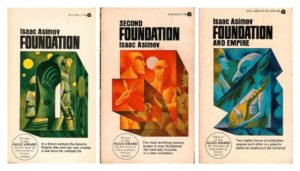
He had constructed three novels in the early 1950s around the idea and its ultimate demolition. Hari Seldon, the fictional founder of psychohistory, had recorded holograms of himself. Whenever the world deemed it was confronting a Seldon Crisis, leaders would gather to play the next hologram in the series, which would explain the path forward through the crisis. This worked exactly as planned for centuries, until the rise of a rebel leader called the Mutant. When the leaders convened for the hologram, they saw Hari Seldon talking about something else entirely. He had not predicted the Mutant. Chaos ensued.
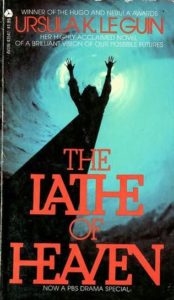
Looking back, I know what prepared me to accept and embrace science fiction: The Lord of the Rings trilogy by J.R.R. Tolkien. Tolkien was not a science fiction writer; his works fall into the fantasy genre. But more than anything else, the stories of Middle Earth prepared me for the creation of the fantastic worlds envisioned by science fiction writers. Not only were the worlds amazing; I discovered these writers had written some phenomenal stories.
What follows is a suggested reading list. It is by no means exhaustive. The authors and works are considered the great science fiction writers of the 20th century. With one exception, and a major one, the writers are male, because it has been male writers who have dominated science fiction. I’ve selected the works that are my favorites, and these are a bare handful of what’s available. But I’ve read them all, and I can recommend them all, without qualification.
The Foundation Trilogy by Isaac Asimov (1920-1992). Foundation (1951), Foundation and Empire (1952), and Second Foundation (1953).
Stranger in a Strange Land by Robert Heinlein (1907-1988). To know you is to grok you.
The novels of Arthur C. Clarke (1917-2008). Because of the movie, Clarke is best known for 2001: A Space Odyssey. My favorites of his are Rendezvous with Rama and especially Childhood’s End.
The novels of Ray Bradbury (1920-2012). Fahrenheit 451 and The Martian Chronicles are in a class by themselves.
The Dune novels of Frank Herbert (1920-1986). The spice planet of Arrakis is still one of most dazzling settings for a novel ever created.
Do Androids Dream of Electric Sheep? by Philip K. Dick (1928-1982). This book was the basis for Blade Runner, the hit movie with Harrison Ford.
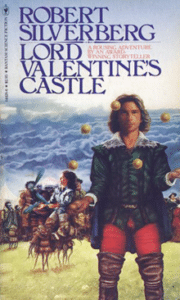
The novels of Larry Niven (1938-). My favorite is the Ringworld series, which I suspect had some influence of the creation of the Death Star in the Star Wars movies.
The novels of Jerry Pournelle (1933-2017). Pournelle has the distinction of being the first writer to create a work using a word processor on a personal computer. He was also quite prolific, including 13 novels he co-authored with Larry Niven. One of those 13, The Mote in God’s Eye, is my favorite.
The novels of Frederik Pohl (1919-2013). Pohl wrote two, Gateway and Beyond the Blue Event Horizon, that are dazzling.
The novels of Robert Silverberg (1935-). Silverberg has written both science fiction and fantasy. Lord Valentine’s Castle combines elements of both. It is the ultimate road trip novel.
All of these writers created works that surpassed the science fiction genre. These novels are testament to the idea that a genre novel can also be a great literary work. And I discovered that simply by pulling a single book from a bookstore shelf.
Photo by Brokentaco, Creative Commons, via Flickr. Post by Glynn Young, author of the novels Dancing Priest, A Light Shining, and the newly published Dancing King, and Poetry at Work.
__________________________

“I require all our incoming poetry students—in the MFA I direct—to buy and read this book.”
—Jeanetta Calhoun Mish
- Poets and Poems: Peter Murphy and “You Too Were Once on Fire” - October 14, 2025
- “Your Accent! You Can’t Be from New Orleans!” - October 9, 2025
- Poets and Poems: Donna Vorreyer and “Unrivered” - October 7, 2025
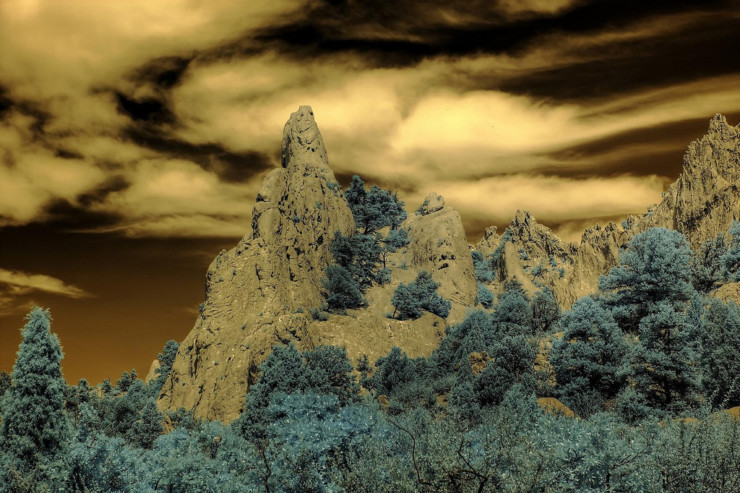
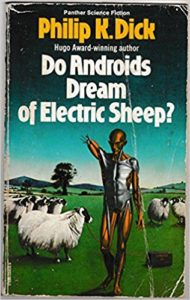

L.L. Barkat says
Curiosity question: have you ever read a sci-fi novel that’s not frightening? 🙂
And, speaking of the issue of how scary they are, why do you think they’re scary?
Glynn says
I’ve read a few that weren’t frightening. Childhood’s End by Arthur Clarke started off in that direction but then evoked more of a reflective type response. And I can think of some older novels, like those of Edgar Rice Burroughs and even H.G. Wells, that had tension but weren’t necessarily frightening.
The scary part, I think, has to do with the science more than the fiction. Science tends to be one of our modern culture’s gods, but it can be a terrifying god, too. What is fine and good today may not be so fine and good tomorrow. And most of us are not scientists. I can remember taking a university course on the philosophy of science taught by a physicist and being stunned to find out that the definition of science most accepted by scientists was “science is what scientists say it is.” In that sense, scientists have more in common with theologians than they might realize.
L.L. Barkat says
So… if I’m reading correctly… the scary part of a science fiction novel is that we don’t understand science? Or that it feels like the Creator/Prometheus thing all over again (think, Frankenstein)?
(I would love to hear Megan’s thoughts on this—what makes science fiction scary—as well as maybe Rick’s and Kortney’s and Laura Brown’s! 🙂 I’m also suddenly remembering that Sara has a great piece about Le Guin’s Left Hand of Darkness, which we should publish, that perhaps answers this question in its own way, too.)
Megan Willome says
Yes, publish anything about LeGuin!
The thing about science fiction is that allows a safe place to play with things that might seem scary here and now, in certain contexts. For example, if I say the word “immigration,” everyone lines up along their respective dotted lines, but when it’s in a sci-fi story, perhaps with killer androids who want a better life, well, then, what if … let’s pretend. Sci-fi lets character and plot reveal every nuance of what that sort of scenario might mean.
I think many of the best science fiction writers do scare us by making us examine technology within the context of story. Again, what if … let’s take this thing we accept now and turn up the volume all the way. What then? Stories about technology often end up usually being stories about power–how do people change when they have it?
L.L. Barkat says
And… I was just thinking to begin a conversation about scientists being more like theologians than they know because (as an outgrowth of the previous statement) theology is whatever theologians say it is. But then I thought that might be getting off topic for a science fiction discussion. 🙂
Maybe the part related to the discussion might be that we “the little people” can feel like the “big guys” tend to steer things in whatever direction they want, based on their own personal leanings. Which leads to the issue of power that Megan brings up. Which does, in the end, feel like a science fiction discussion. It seems to me that power is one of the main issues the genre deals with.
Are there other main issues, maybe even ones bigger than the question of power, that you believe are central to the sci-fi genre? (Very interesting to think about what makes a genre a genre. 🙂 )
Megan Willome says
Glynn, thank you, and thank you for the list! I think Tolkien’s LOTR prepared me as well.
I’ve read some of these authors, but not necessarily the books mentioned. Your sentence about Asimov’s “Foundation”–“He had not predicted the Mutant.”–completely intrigues me. I think Bradbury’s “Farenheit 451” is one of the best novels ever.
There are a couple of other women science fiction writers, besides LeGuin, I’ve recently been introduced to: Octavia Butler and N.K. Jemisin.
L.L., in answer to your question, I’d say Andy Weir’s “The Martian.” Lots of suspense but not scary. There are some parts that drag a little, unless you are actually interested in the math behind the particular problem he’s solving. But once the story moves from just this dude stranded on Mars to what the people on Earth are doing to get him home, it gets cinematic, almost “Apollo 13”-ish.
Glynn says
One interesting thing about science fiction is what it shares with mystery — a multitude of sub-genres. “Fahrenheit 451” is about as far as you can get from “Rendezvous with Rama,” and yet they’re both classified as science fiction. And you have everything from fantasy to extremely high-tech space stories.
Laura Lynn Brown says
Love those old book covers.
Has anyone read Zenna Henderson, especially her “The People” series? She should be as famous as the rest of these writers; sadly, she’s not. Her work is less scary and full of wonder. In fact, “Holding Wonder” is the name of one of her novels. She had a day job; she was an elementary school teacher. Her books went out of print, but the People stories were republished in 1995 in a collection called “The Ingathering.”
John Christopher also has a YA trilogy (The White Mountains, The City of Gold and Lead, The Pool of Fire) that has some scary parts but ultimately a happy good-over-evil outcome.
L.L. Barkat says
Thanks, Laura. 🙂 I might need to recommend some of these to my girl.
What do you think makes sci-fi scary, when it’s scary? 🙂
Laura Lynn Brown says
Scary things:
We’re not the only creatures in the universe?
Enemies. Especially if they came here from other worlds, they are smarter and more technologically advanced than we are, and they want to dominate us.
The other. Fantastic creatures that are somewhat humanoid but somehow, to us, grossly distorted. And naked (even if, or possibly especially if, their skin is a lot like something in the animal kingdom — scales, feathers, amphibian-like).
Superhuman powers. Because they might be weaponized, used for evil rather than good. (The people in Zenna Henderson’s stories have powers that are always both responsibility and gift.)
Travel. Leaving home, making your way in uncharted territory, no GPS, unknown unknowns, the need to respond very quickly.
Oppressive forms of government. Totalitarianism, mind control.
And I suppose technology itself.
L.L. Barkat says
Laura, I love the variety here. 🙂
I asked Sara the same question, and she was quick to remind me that I was probably thinking of the dystopian part of the genre. “There are utopian stories, too, like Star Trek.”
So then the travel, for instance, becomes exciting and filled with awe and possibility.
Technology. I wonder if that’s the Frankenstein story: Will what me made unmake us? Or, related, will what we made care not for its maker?
Laura Lynn Brown says
About travel: Once I was in a small discussion group where there was an ice-breaker question to get us started. The question was something like “If you could take a rocket trip tour into the galaxy, for free, would you, and why or why not?” Most people said no, because they’d want to be “safe.” Only two of us, as I recall, said yes, of course. The chance to see planets and stars and deep-space creation up close? Show me the marvels.
Of course the question was fanciful. That rocket doesn’t exist. I think it was partly for the group leader to assess some things — where people were on the adventure vs. risk continuum, and our capacities for divergent thinking.
Karl Smithe says
The character that derailed Seldon’s psychohistory was called “The Mule”. He was a mutant and that was something Seldon could not predict.
Nice of Asimov to come up with that. Randomness of biology would not fit into psychology.
Laura Lynn Brown says
Also, I like the spooky Viewmaster quality to this photo.